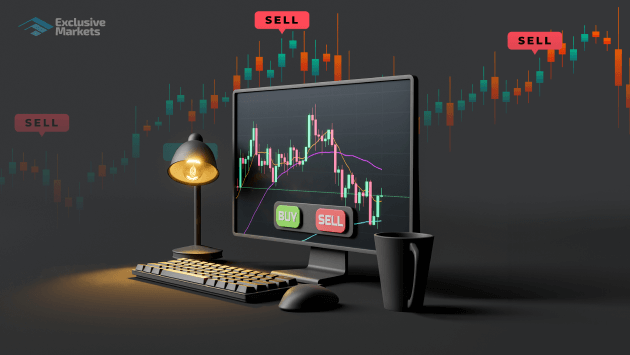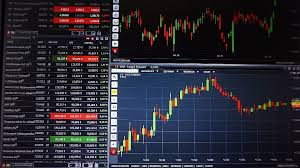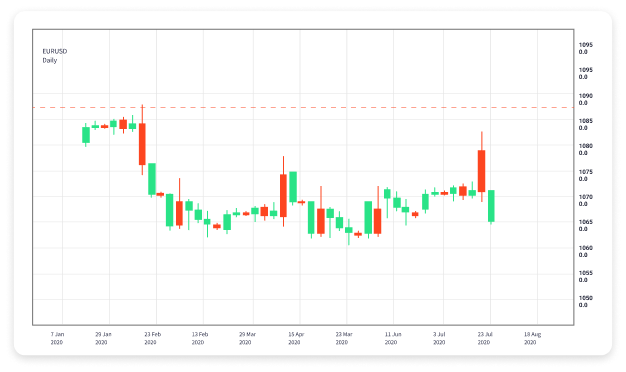Forex Trading for Beginners A Comprehensive Guide 1700761063

Forex trading, or foreign exchange trading, is an exciting world that attracts many budding investors with the promise of high returns. If you’re a beginner aiming to dive into the forex market, it’s crucial to educate yourself on the fundamental concepts to navigate this complex terrain successfully. You can find forex trading for beginners Best Indonesian Brokers to help you start your journey effectively.
Understanding Forex Trading
Forex trading involves exchanging one currency for another, intending to profit from fluctuations in currency values. The forex market is the largest and most liquid financial market in the world, with a daily trading volume exceeding $6 trillion. Unlike stock markets, forex operates 24 hours a day, five days a week, allowing traders to participate without being constrained by hours of operation.
Key Terms in Forex Trading
Familiarizing yourself with essential terms will empower you as a trader:
– **Currency Pair**: Forex is always traded in pairs, such as EUR/USD or USD/JPY. The first currency is the base currency, and the second is the quote currency.
– **Pips**: This term refers to the smallest price movement in the currency market, usually the fourth decimal in a currency pair (0.0001).
– **Leverage**: Leverage allows traders to control a larger position with a smaller amount of capital. For instance, a leverage of 100:1 means that you can control $100,000 with just $1,000.
– **Spread**: The difference between the buying (ask) price and the selling (bid) price of a currency pair. Essentially, it’s the cost of trading.
Strategies for Beginners
Starting in forex trading can be daunting, but having a strategy simplifies the process. Here are a few strategies that beginners should consider:

– **Demo Trading**: Before risking real money, open a demo account with a regulated broker. This allows you to practice your trading skills and test strategies without financial risk.
– **Technical Analysis**: Utilize charts and technical indicators to predict future price movements. Look into tools like moving averages, RSI, and MACD to better understand market trends.
– **Fundamental Analysis**: Stay informed about economic events and news that can impact currency values. Economic indicators, such as inflation rates, employment data, and interest rates, directly influence forex prices.
– **Risk Management**: Always set a stop-loss order to minimize potential losses. Successful traders risk only a small percentage of their capital on any single trade.
Choosing a Forex Broker
Selecting the right forex broker is crucial for your trading success. Consider the following factors when choosing a broker:
1. **Regulation**: Ensure that the broker is regulated by a reputable financial authority. This adds a layer of security to your investments.
2. **Trading Platform**: Look for a user-friendly platform that offers comprehensive analytical tools and resources.
3. **Fees and Spreads**: Understand the fees associated with trading, including spreads, commissions, and withdrawal fees. Compare these among different brokers to find the best option.
4. **Customer Support**: Choose a broker with reliable customer service. You’ll want to access support quickly when faced with issues or questions.
Developing a Trading Plan
A solid trading plan is essential for success. Your plan should include:
– **Goals**: Define what you want to achieve in forex trading. Are you looking for short-term profits or long-term investments?

– **Risk Tolerance**: Understand how much risk you are willing to take. This will help in determining your position size.
– **Strategy**: Outline your trading strategy, including entry and exit points based on your technical or fundamental analysis.
– **Review**: Regularly assess your trading performance to identify what works and what doesn’t. Adjust your strategy accordingly.
Common Mistakes to Avoid
Even the most seasoned traders can fall victim to mistakes. Here are common pitfalls to avoid:
– **Overleveraging**: Using high leverage can amplify losses. Stick to manageable levels of leverage, especially as a beginner.
– **Ignoring the Market**: Always be aware of market conditions and news releases. Ignoring external factors can lead to poor trading decisions.
– **Chasing Losses**: It’s common to want to recover losses quickly, but this often leads to further losses. Stick to your trading plan and avoid emotional trading.
– **Lack of Patience**: Forex trading requires discipline and patience. Rushing trades or making impulsive decisions can harm your overall performance.
The Importance of Continuous Learning
The forex market is dynamic, and continuous education is crucial. Attend webinars, read books, and follow forex news to stay informed about market trends. Engaging with other traders in forums can also provide valuable insights and support.
Conclusion
Forex trading can be a profitable venture when approached with the right knowledge and strategies. Start by understanding the basics, developing a solid trading plan, and continuously learning. As a beginner, take your time, practice diligently, and ensure you understand the risks involved. With patience and strategic planning, you can find success in the exciting world of forex trading.






